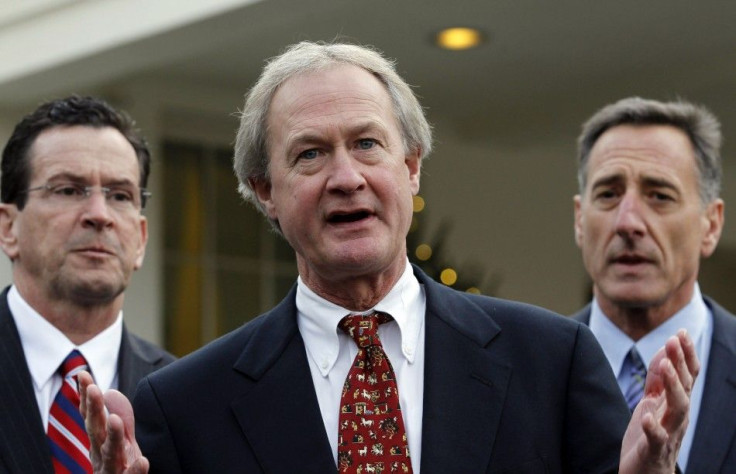Rhode Island's Public Unions Protest Pension Reforms

More than a thousand Rhode Island union members rallied outside the State House on Tuesday to protest pension reforms proposed by Gov. Lincoln Chafee and Treasurer Gina Raimondo.
The reforms would suspend cost-of-living increases to pensions for up to 19 years, combine pensions with 401(k)-esque accounts and raise the retirement age for most public workers. Chafee and Raimondo say it is necessary to close a multibillion-dollar gap in pension funding, which is anywhere from $9.3 billion to $18 billion, depending on whose numbers you believe.
Union members said the proposals were especially offensive to state workers who have served for years under the old rules.
A Midstream Change?
They want to change the rules, when so many of us are one, two, three years from retiring, Neil Barker, 64, a state social worker from Coventry, R.I., told The Associated Press. They need to think carefully about what it is they're doing before they cause problems for a lot of people.
That was a central theme of the rally, where protesters held signs that read, I fulfilled my obligation, FUND YOURS! and Keep the promise, we did!
The state's public-sector unions have threatened to sue if the legislature passes the proposals, but Chafee and Raimondo say that pension reform is a lesser evil than raising taxes and cutting public services, which is what the state would have to do to keep the pension system as-is.
Reform a Key to Rhode Island's Prosperity?
Passing this reform has enormous implications for Rhode Island's economy, Raimondo, a Democrat, told the state legislature in late October, according to The Boston Globe. It's necessary for the future prosperity of Rhode Island, so we have the money to invest in schools, in infrastructure, in services.
Chafee, a Republican-turned-independent, added that numerous states are facing similar problems with unfunded pension liabilities, and that Rhode Island has a chance to be a leader by restructuring its pension system to fix the problem without making workers pay more, hurting taxpayers or cutting services that residents have come to expect.
He was drawing a contrast between Rhode Island and states like New Jersey, which recently passed reforms that will sharply increase the amount that public workers have to contribute to their pension funds, and Illinois, which has introduced legislation that would give workers a choice between paying more for their current benefits, paying the same amount for fewer benefits, or switching to a riskier 401(k) plan.
© Copyright IBTimes 2025. All rights reserved.





















